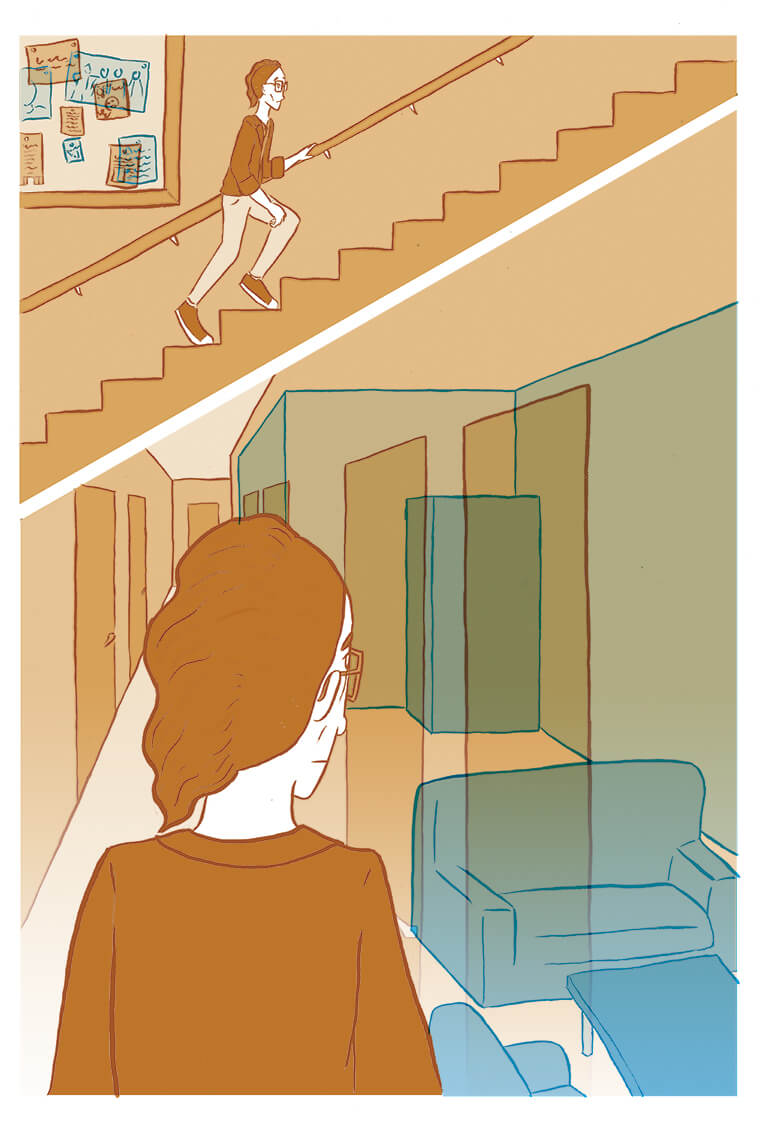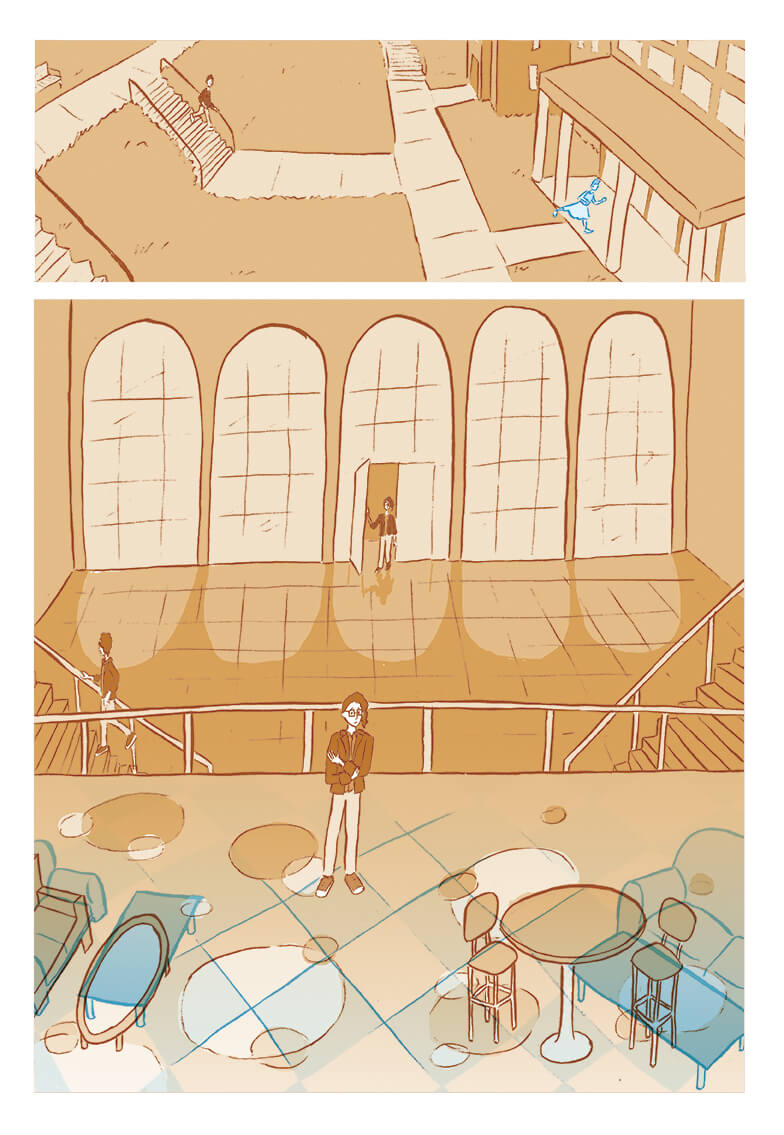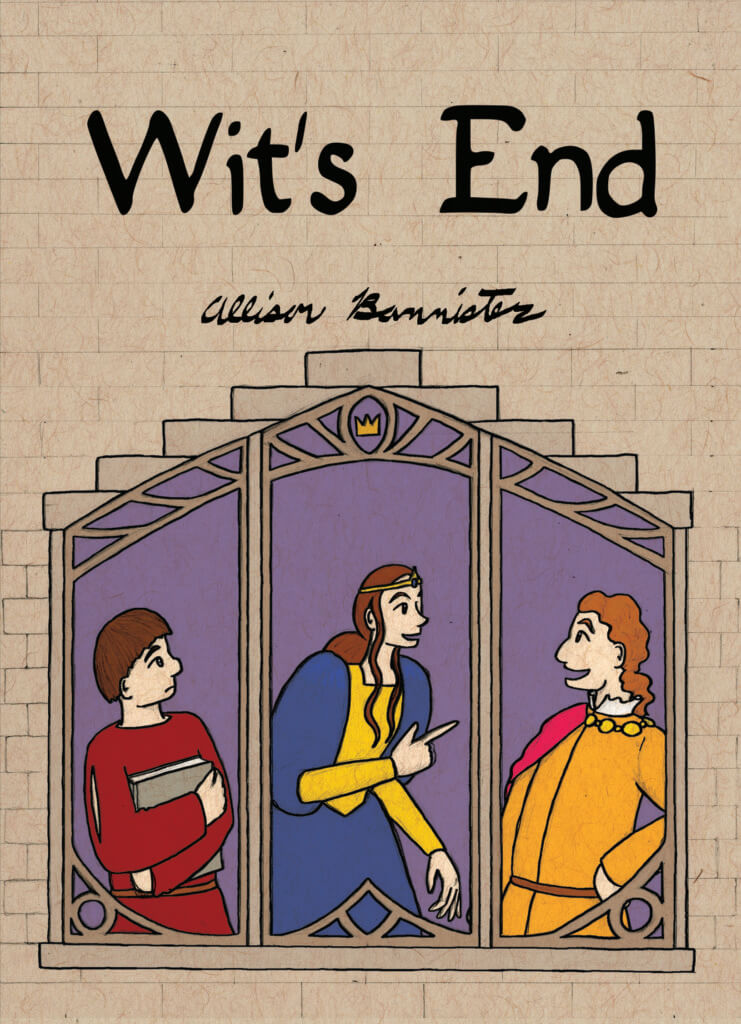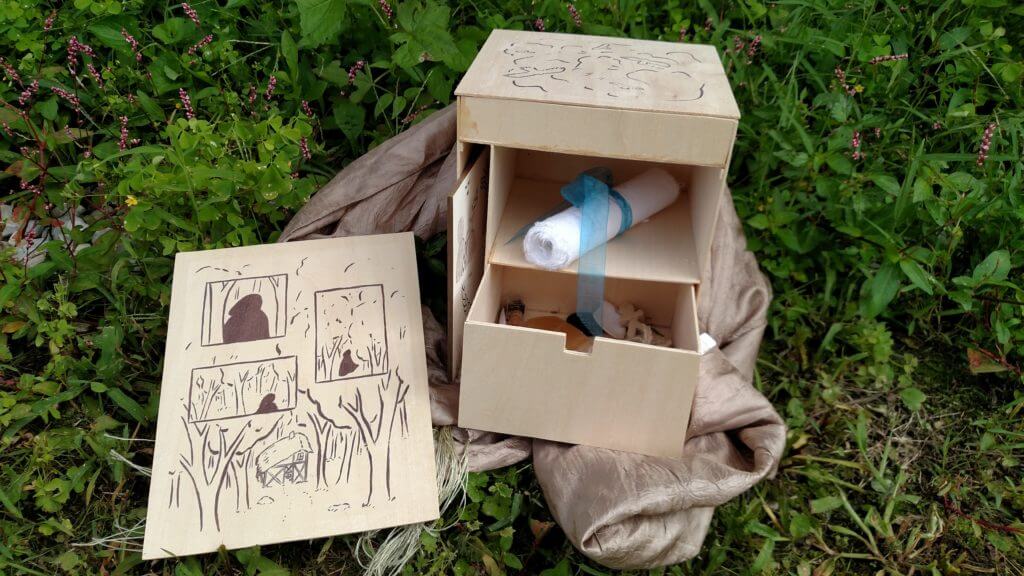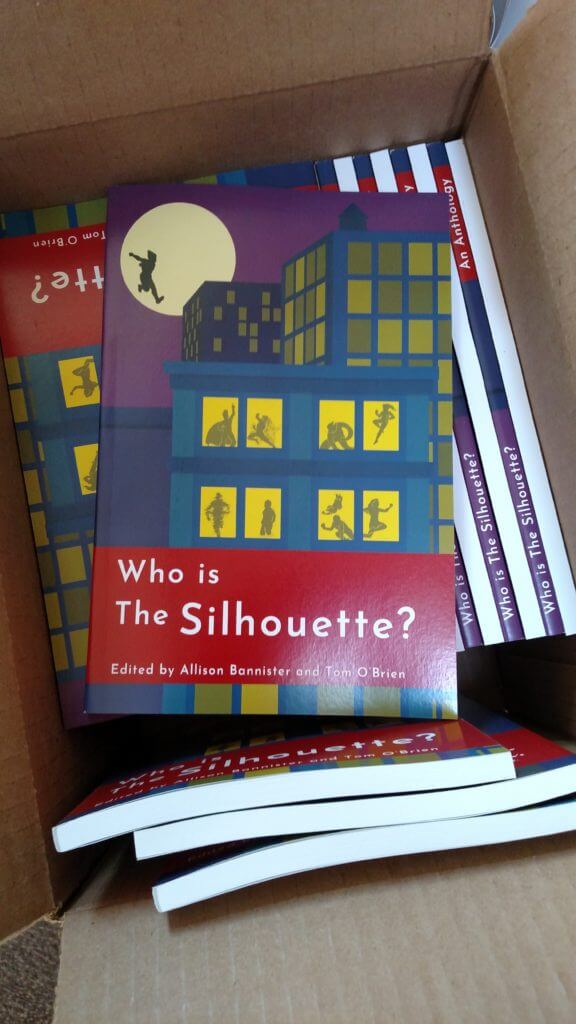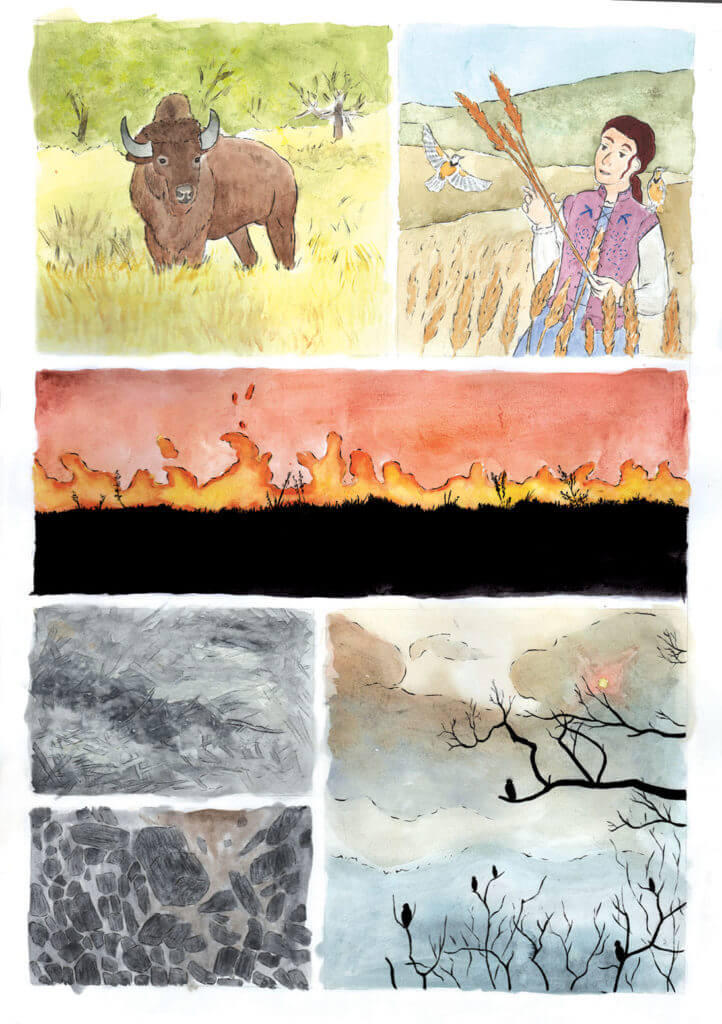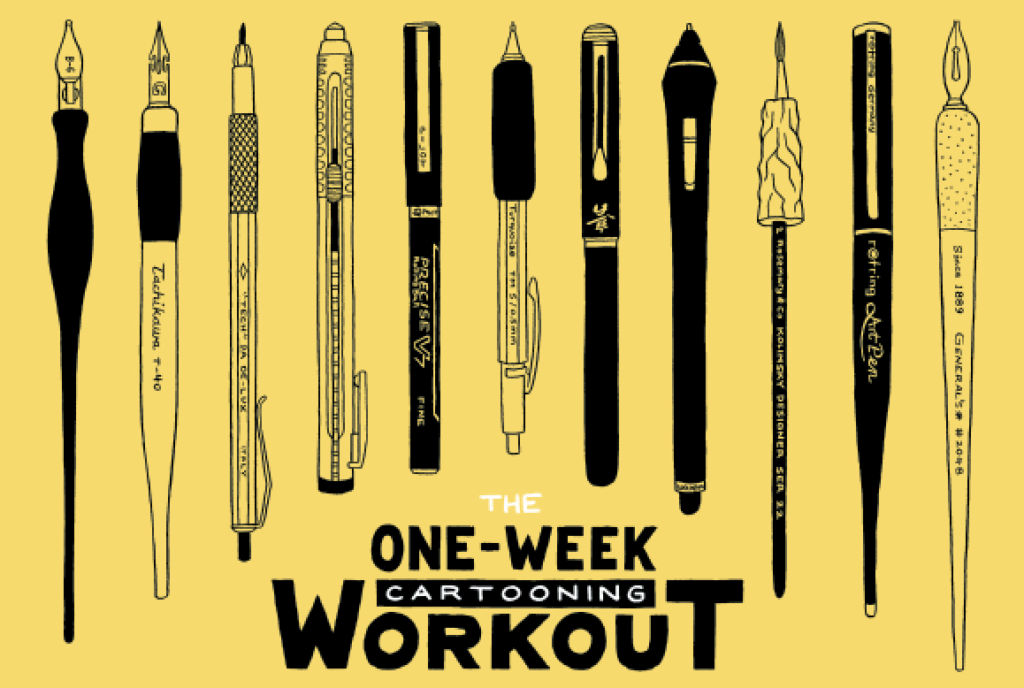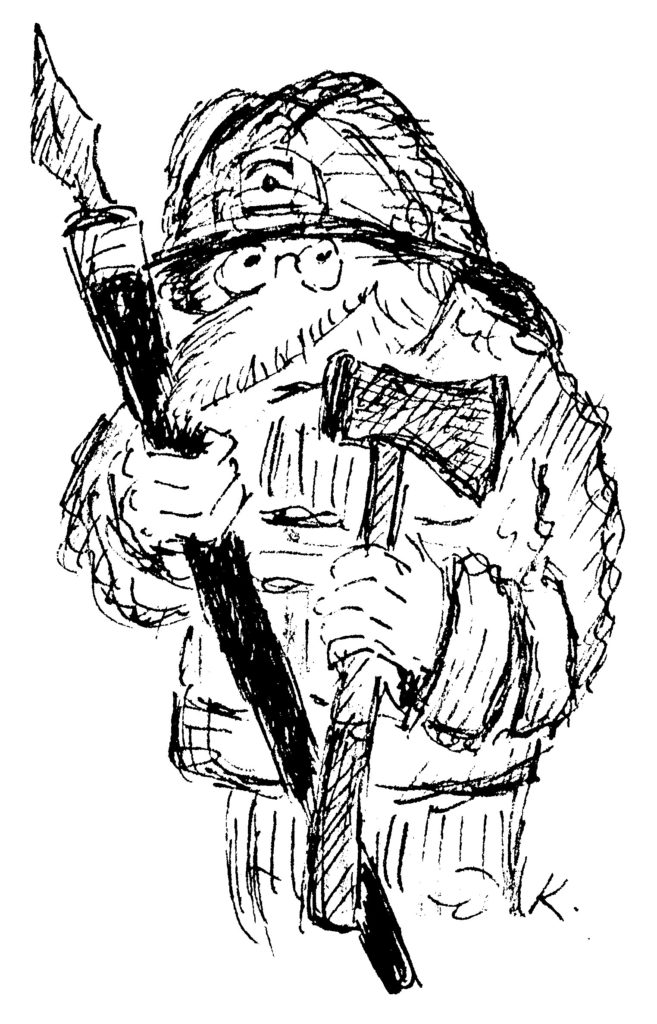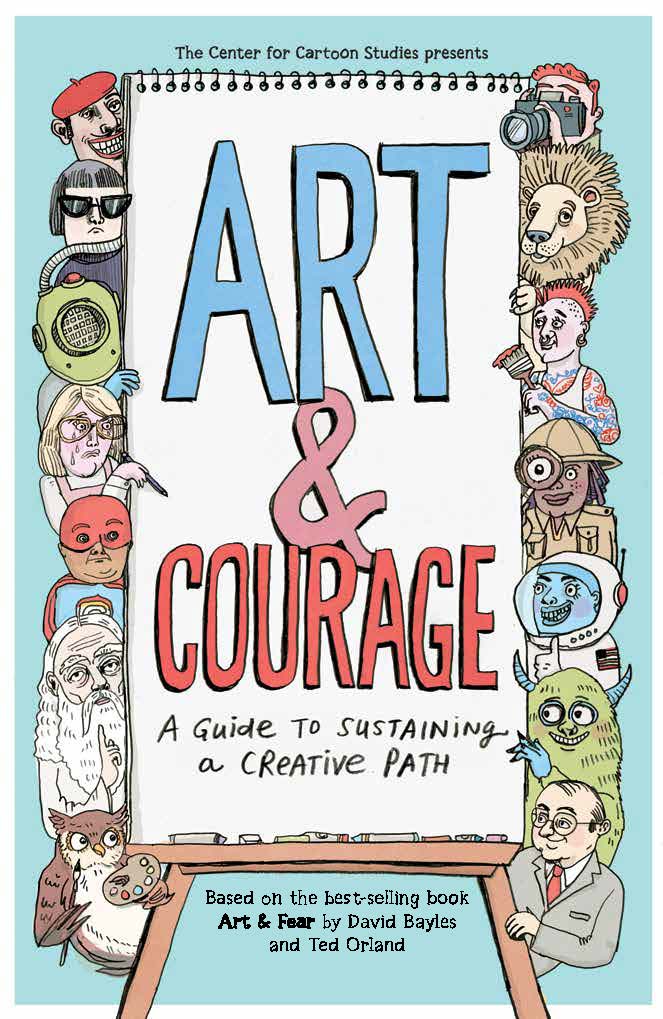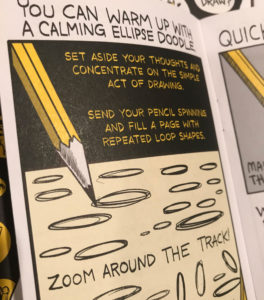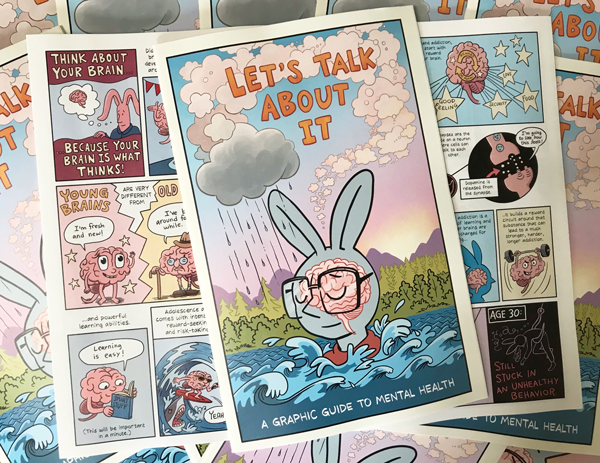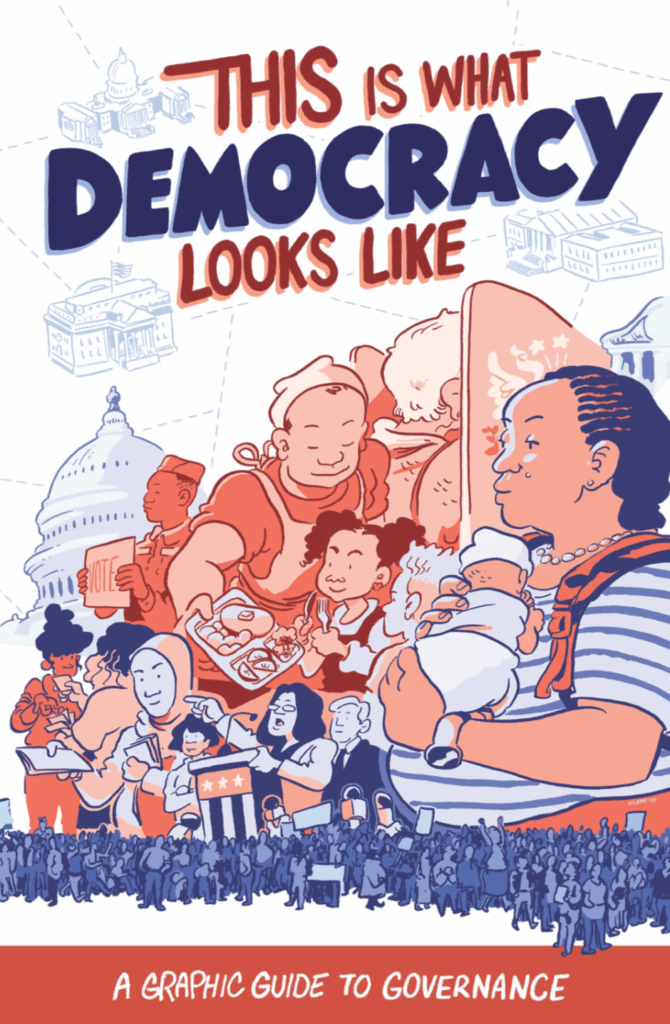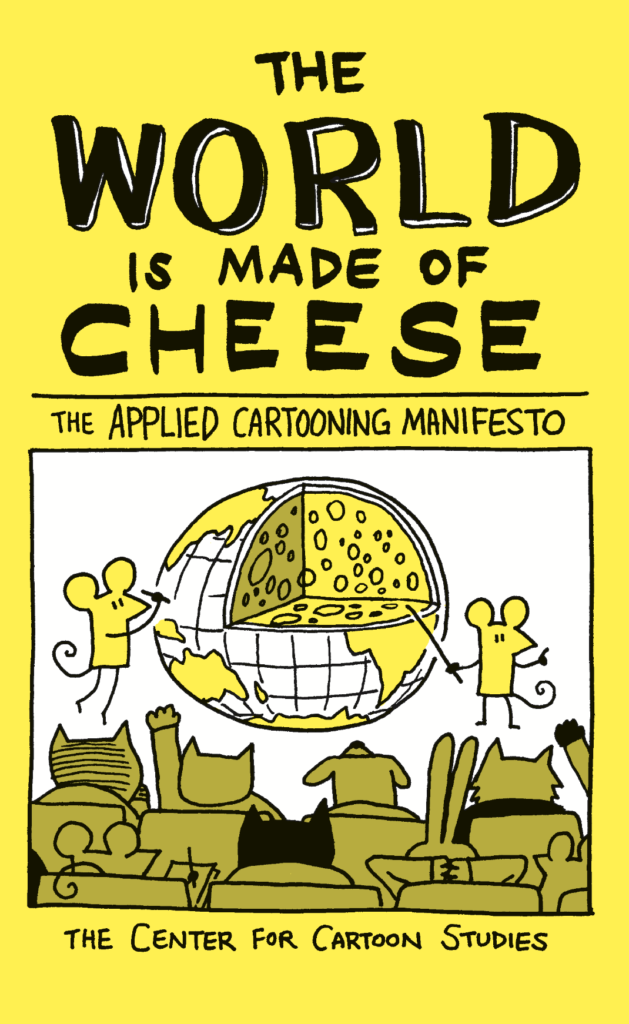September 19, 2018
Allison Bannister ′14 is currently working on her PhD in Communication and Rhetoric at Rensselaer Polytechnic Institute in New York. She completed the following interview with Angela Boyle ′16.
Who was your thesis advisor for your second year at CCS?
My advisor was Linda Medley. Her cartooning is amazing, and Castle Waiting (Fantagraphics, 2006)was the first graphic novel I ever owned, so I had loved her comics for a very long time. Even though things didn’t work out as well as we’d hoped and she was only able to work with me for the fall semester, it is still amazing to me that I got to work with one of my cartooning heroes as part of my time at CCS.
What drew you to a PhD in Communication and Rhetoric?
Practically my whole extended family is in academia, so it’s not really a surprise that I have also been drawn to teaching. Pursuing the PhD gives me the opportunity to open more doors in higher ed, build additional skills and experience, and come at comics and storytelling from another direction—to try to understand what our work can do once it gets out into the world and how readers interact with and are moved by it.
I was looking for four things when applying to programs:
- Funding. RPI is committed to funding all of their PhD students—I have a tuition waiver and earn a stipend as a teaching assistant, an arrangement that was common to every program I seriously considered. I would recommend that this be at the top of anyone’s list when looking for a PhD. You shouldn’t have to take on debt.
- A program that would open new doors. As much as I was tempted by a PhD in comics specifically (and there is one at the University of Florida!) I have a fantastic degree in comics already. I wanted something that would let me build on my background in comics while also gaining a broader set of skills that would make me more marketable in academia (teaching comics is the dream, but also being able to teach classes that every university needs may be helpful in landing a tenure-track job).
- Interdisciplinary and open to students pursuing their own interests. Sometimes this has meant feeling like I’m on my own, but it also means that they don’t expect me to fit a specific mold (I’m not good at that). My committee is made up of artists, media scholars and game designers, all with their own backgrounds and areas of expertise, which is very exciting.
- A location where I could comfortably live. Some of the schools I looked at were in major cities, where the cost of living is higher and the necessary commute would have eaten up a large chunk of my day. I visited another town I was considering a school in and had the worst allergy attack I’ve ever experienced—as soon as we hit the city limits my sinuses went crazy and I barely held them at bay until we left. In Troy, NY, the ratio between my stipend and rent isn’t too bad, campus is a 40 minute walk or a 7 minute drive, and there’s a great farmer’s market, a comic book shop that’s decent, and lots of places to eat.
So there were lots of factors that led me to this program at RPI—although initially I was drawn more heavily to programs more specifically focused on media studies or art, this particular communication program checked all the boxes and really resonated with me.
Do you get to use comics in your PhD work?
Sometimes! I’m still figuring out what my dissertation will look like, but there will probably be some comics in it, and I will be making and experimenting with comics as a part of (at least some of) my research. This past year the project I may have been most excited about was an art book I constructed from balsa wood, with shelves, a drawer and secret compartments containing comics that utilize thermo-chromic pigments to change the way the reader physically interacts with the work (the ink is opaque below about 76º Fahrenheit and fades away as it warms). I presented the box at the University of Florida Annual Comics Conference on comics and materiality in April. Sharing my art as a form of experimental research with unconventional materials in a room full of comics scholars was incredible.
Is there anything you learned at CCS that is particularly useful for this degree?
The greatest things CCS gave me may be the confidence to introduce myself as a cartoonist with some authority on my subject (I am my own captain!), and a community of other cartoonists. There is value in scholarship that detaches the artist from the art, but being able to reach out to so many amazing cartoonists is a resource that gives me different insights and perspectives than I might otherwise have. Oh, and Steve’s history class! More than once I have drawn on things I learned from Steve to add context to my thoughts on the past, present and future of comics.
In some ways, though, I was woefully unprepared. I didn’t have a strong scholarly background to build from, and had to find my footing in rhetoric and media studies while also searching out scholarship on comics. I had no idea what was out there! (If there are other CCS folks who want to get into comic studies, feel free to shoot me an email. I’m slowly building my library, and am happy to share.) So it’s been hard work, but I wouldn’t trade my experience at CCS for anything.
While working toward your PhD, you also ran an anthology, Who is The Silhouette? with partner Tom O’Brien ′14. How did you organize your time between these two projects?
It was a challenge but so rewarding. We tried to plan our timeline so that we wouldn’t hit major goalposts with the anthology while I was also at my busiest parts of the semester, but we couldn’t anticipate how everything would shake out and November/December got dicey—I wanted to be involved in everything, but Tom had to take the reins for awhile. Luckily I had a fair bit of time over winter break to spend editing, and while things were slow at the beginning of the spring semester, we worked on the layout, ran the Kickstarter, and got edits out. We decided to delay the printing until May so that we could give contributors a little more time to wrap up their work and so that I could be fully engaged during that final sprint.
Who is The Silhouette? was inspired in part by my studies. I had been looking at different depictions of Batman, Hermione Granger, Sherlock Holmes and other characters over time and across media (including fan art) for a final paper. Looking at different interpretations of these well established characters was fascinating to me, and helped to spark the idea that became this anthology. Who is the Silhouette? opens with a 4-page comic drawn by fellow CCS grad Willow Payne ′14 in which the local news catches an unidentified hero on camera saving people from a burning building. Each of the other contributors or creative teams gave us a different possible explanation of who that hero might be—their gender, race, sexuality, superpowers, etc. We chose to highlight a diverse array of stories, which come together as a sort of reflection on what it means to be a hero and what kinds of people we cast in those heroic roles, if I can get just a little academic about my own anthology. It’s also just a lot of fun superhero stories.
Are you working on any comic projects we can look forward to?
My drawing time is limited, particularly during the school year, but Tom and I are aiming to collectively publish a new book each year—this year it was the anthology Who is the Silhouette?, next year it will be a collection of Tom’s non-fiction comics The Liquor Cabinet, which I’m helping to edit. I love collaborating with other cartoonists as a writer and editor, so that’s where a lot of my comics time is going.
That doesn’t mean I’ve given up drawing though! Right now I’m working on a queer fairy-tale comic tentatively titled “Spirit of the Prairie.” It’s going to be 12 pages, fully watercolored, and draw from the landscape of my home state of Kansas. Because my drawing time is so limited and precious, I’m very picky about what I take on. I’m pitching work to anthologies here and there, but mostly as a writer—if I’m going to draw something, I want it to be something that I can offer a unique perspective on or connection to. This comic is one I have to draw myself.
As I move forward into the next year of my PhD, I expect my work to get weirder. Though they may not be mass-producible, I’m really interested in crafting comics that are multi-dimensional and multi-modal, comics you can interact with in different ways, that you can touch, taste and smell. How would it change the experience to be able to taste the story? To “read” a comic that can only be consumed once? To be immersed in the story in a different way, but to still be able to identify and understand that story to be a comic? I don’t know, but I’m excited to explore.
Tags: Allison Bannister, Anthology, cartoonstudies, Castle Waiting, Fantagraphics, Ghost Room, interview, Kickstarter, Linda Medley, Minicomic, PhD, Rensselaer Polytechnic Institute, The Liquor Cabinet, Tom O'Brien, Who Is The Silhouette?
